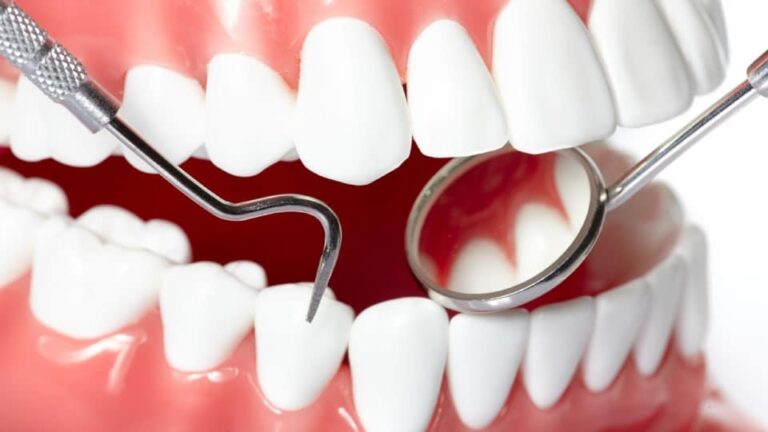When Is a Dental Abscess an Emergency? Warning Signs You Shouldn’t Ignore
Understanding Tooth Infections: Symptoms, Serious Risks, and When to Seek Immediate Care
At Independence Dental, we understand that dental emergencies can be frightening and painful. When a tooth abscess develops, knowing when to seek immediate care can make the difference between saving your tooth and facing serious complications. Our experienced dental team is committed to providing prompt, compassionate emergency care when you need it most. We’ve helped countless patients in our community navigate dental infections, and we’re here to guide you through recognizing the warning signs and understanding your treatment options.
Dental abscesses are among the most common reasons patients seek emergency dental care, and for good reason. These bacterial infections don’t resolve on their own and can quickly escalate from uncomfortable to dangerous. At Independence Dental, we make every effort to accommodate same-day emergency appointments because we know that waiting can put your health at risk.

What Is a Dental Abscess and How Does It Develop?
A dental abscess is a pocket of pus caused by bacterial infection in or around your tooth. These infections typically develop when bacteria enter the tooth through cavities, cracks, chips, or advanced gum disease. Once inside, the bacteria multiply and cause inflammation, creating a painful collection of pus at the tooth’s root or in the surrounding gum tissue.
The infection occurs because your tooth’s protective enamel has been compromised. When decay, trauma, or periodontal disease creates an opening, oral bacteria gain access to the tooth’s inner pulp, which contains blood vessels, nerves, and connective tissue. Research shows that dental abscess-related emergency room visits occur at significant rates, with hospital admissions for dental infections happening at approximately 1 per 2,600 people in the United States.
Recognizing the Warning Signs of a Tooth Infection
Early recognition of abscess symptoms allows for faster intervention and better outcomes. Common signs include severe, persistent toothache that may throb or feel like dull pressure. This pain often radiates to your jaw, neck, or ear, making it difficult to pinpoint the exact source. You may also experience heightened sensitivity to hot or cold temperatures that lingers even after the stimulus is removed.
Visible symptoms include swelling in your gums, face, or jaw, often accompanied by redness around the affected area. The tooth may feel loose, and you might notice a foul taste in your mouth or persistent bad breath. Some patients develop a visible bump or pimple-like swelling on their gums near the infected tooth.
Systemic symptoms can accompany the local infection. These include fever, swollen lymph nodes in your neck or jaw, and general feelings of unwellness. If the abscess ruptures, you may experience a sudden rush of foul-smelling, salty fluid in your mouth, which often brings temporary pain relief. However, even if the pain improves after rupture, the infection remains and requires professional treatment.
When a Dental Abscess Becomes a Medical Emergency
While all dental abscesses require prompt attention, certain symptoms indicate a true medical emergency requiring immediate care. Seek emergency treatment immediately if you experience difficulty breathing or swallowing, as this may indicate the infection is spreading to your airway. High fever that doesn’t respond to over-the-counter medication signals that the infection may be spreading beyond the tooth.
Severe facial swelling, especially if it’s rapidly worsening or affecting your ability to open your mouth, requires urgent care. Excruciating pain that over-the-counter pain relievers cannot manage indicates a serious infection that needs professional intervention. If you notice swelling in the floor of your mouth or develop neck pain and swelling, these could be signs of a potentially life-threatening condition.
Left untreated, dental abscesses can lead to serious complications. The infection can spread to your jawbone, causing bone loss and tooth loss. In severe cases, bacteria can enter your bloodstream and spread throughout your body, potentially affecting your heart, lungs, or brain.
How Independence Dental Treats Dental Emergencies
When you arrive at Independence Dental with a dental abscess, our first priority is relieving your pain and controlling the infection. We begin with a thorough examination and may take X-rays to identify the infection’s source and extent.
Treatment options depend on the severity and location of the abscess. We may drain the abscess to remove pus and relieve pressure. Many patients receive antibiotics to help control the infection, though antibiotics alone cannot cure an abscess. Definitive treatment often involves root canal therapy, which removes the infected pulp, cleans the tooth’s interior, and seals it to prevent reinfection. If the tooth is too damaged to save, extraction may be necessary.
Preventing Future Dental Infections
Prevention is always preferable to emergency treatment. Maintain excellent oral hygiene by brushing twice daily with fluoride toothpaste and flossing daily. Regular dental checkups allow us to identify and treat cavities before they become infected. Limit sugary foods and drinks that contribute to tooth decay, and address dental problems promptly rather than waiting for them to worsen.
Experiencing Dental Pain? Don’t Wait for an Emergency! Contact Independence Dental Today!
Dental abscesses are serious infections that require immediate professional care. If you’re experiencing tooth pain, swelling, or any symptoms of infection, don’t wait to see if it improves on its own. At Independence Dental, we’re committed to providing prompt emergency care to protect your oral and overall health. Contact us immediately if you suspect a dental abscess. We’ll work to accommodate you as quickly as possible, often offering same-day emergency appointments. Your smile and your health are worth protecting!






